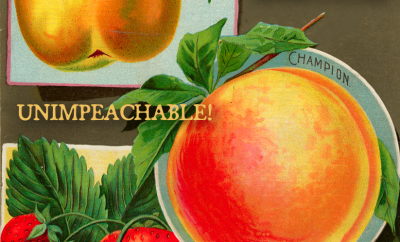
News
Google vs. Authors Guild: The Fight is Finally Over
It seems as if Google is always caught in the midst of a lawsuit. This time, has Google gone too far? Judge Denny Chin doesn’t think so.
Over the past eight years, Google has been in constant conflict with the Authors Guild, the not-for-profit American organization of and for authors, arguing the legality of Google Books.
Google Books, formally known as Google Print, is a revolutionary technology, initially introduced at the Frankfurt Book Fair in October 2004, that compiles millions of full-text books and magazines for public use.
Since the inception of Google Books, not much has changed. The documents continue to be scanned and converted into text through a process called optical character recognition where they are finally stored in a digital public database for users all around the world to use.
This has been an excessively drawn out copyright fight between juggernaut Google and the Authors Guild. And now, it is finally over, as Judge Denny Chin ruled in favor of fair use as it is something that benefits the masses. So as long as it benefits the masses, should it be partially free? (Healthcare anyone?)
John Locke is probably turning in his grave right this instant.
John Locke, an english philosopher and physician, unequivocally believed in the idea of private property. If you create it, you claim that territory, conceive an idea, it is all yours—a sacred western value that the United States treats very seriously.
The ruling on Google Books completely turns this idea on its head. Furthermore, this is a landmark case because it could create a precedent for future court cases when it comes to copyright law.
Judge Chin’s overarching argument is that Google allows readers to discover books, therefore it will bring new income to the readers.
Judge Denny Chin made the ruling based on the fact that Google’s digitization of the source material is “highly transformative” and won’t interfere with the original market.
Now, this case is much bigger than it actually seems. On the surface, Judge Denny Chin’s decision seems great, enabling the world access to more than 20 million books. Unfortunately, this ruling utterly decimates the idea of copyright.
Copyright is a legal concept that gives the creator exclusive rights and protection over original works of authorship, ranging from literary artistic, and musical intellectual works. The author alone has the right to replicate, distribute, perform or display copies of his or her work.
This court case may be appealed as the judge basically ruled that as long as it benefits the masses, copyright really isn’t much of an issue. It renders everything copyright stands for utterly useless.
Will this court case be appealed? Probably. As of now, this “essential research tool” is available for everyone to use.
—
Featured image courtesy of [Lin Kristensen via Wikipedia]








Comments